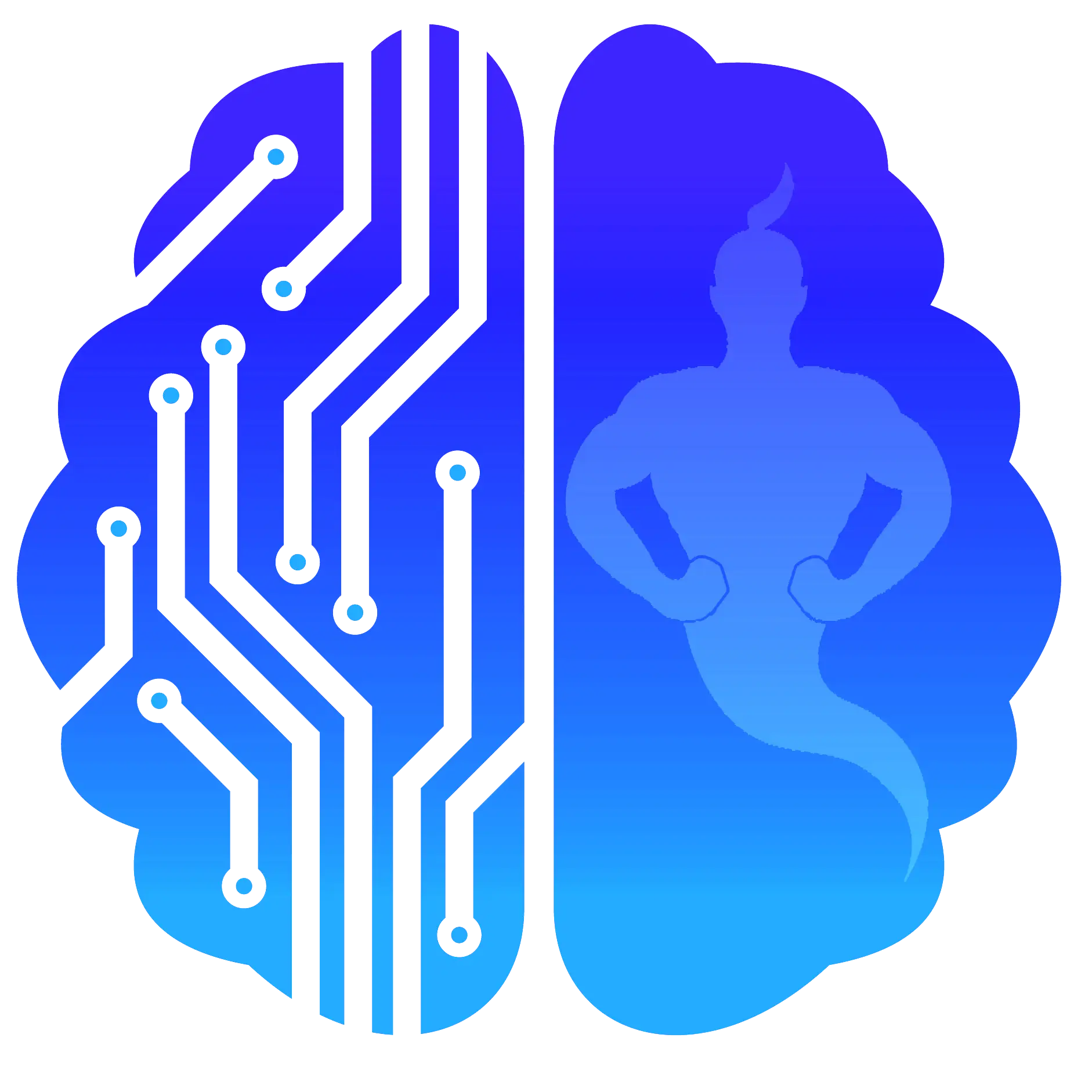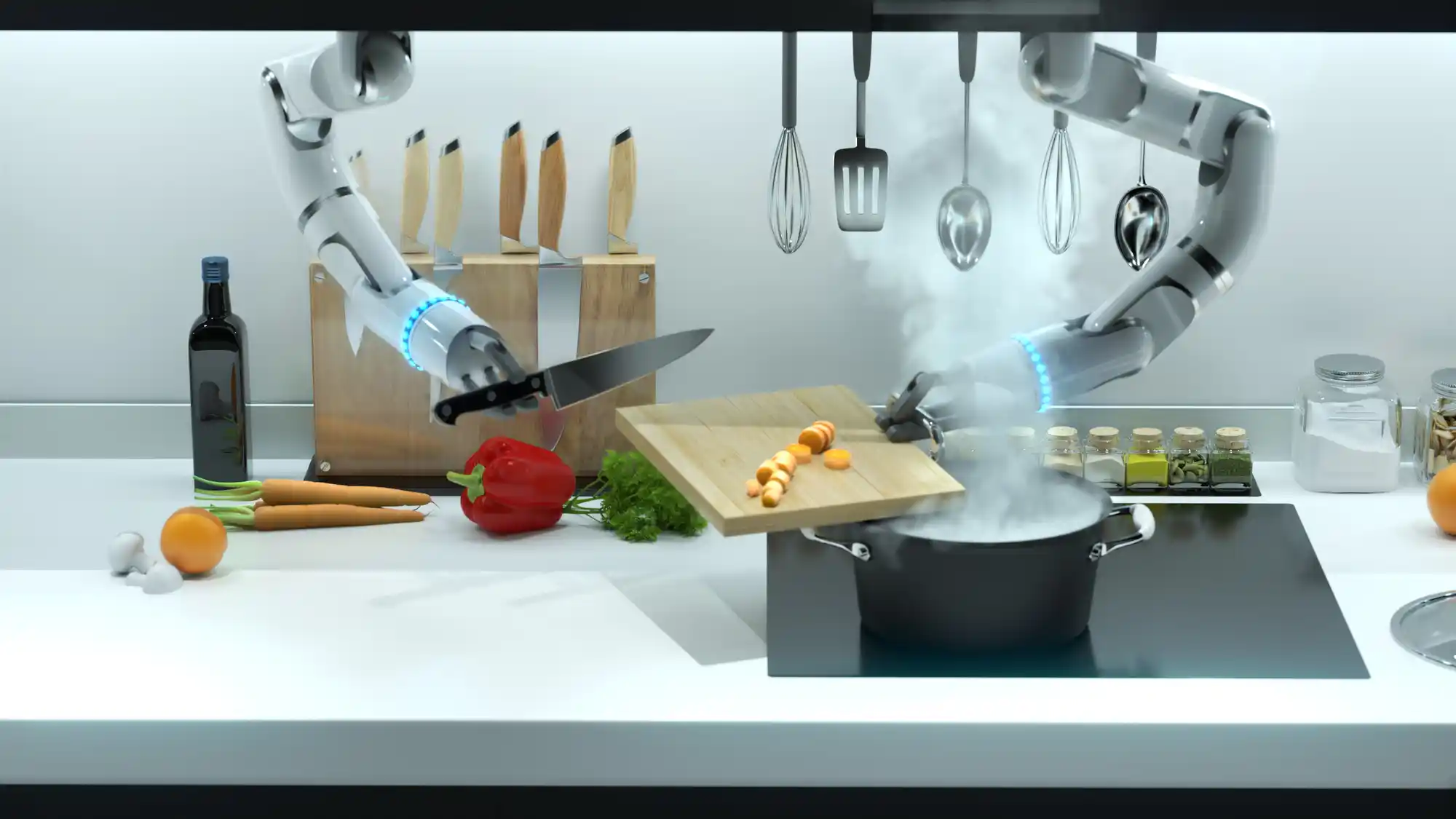Artificial intelligence (AI) is increasingly omnipresent in our lives. Every day, new applications are born, bringing improvements and innovations to our daily lives.
From virtual assistants and smart homes to predictive analytics, AI is changing the way we live, work and play.
Virtual assistants
Alexa, Siri, Google Assistant… These names probably sound familiar. Thanks to AI, these assistants can understand our requests, respond to them and even anticipate our needs. They can manage our diaries, answer questions, play music and much more, simplifying our daily lives.
The smart home
Smart thermostats learn our temperature preferences and adjust heating or cooling accordingly. Lights adapt to the time of day or our habits, and even our refrigerators can now suggest recipes based on their contents.
Energy management
Smart thermostats, such as Nest or Ecobee, learn residents’ habits and automatically adjust the temperature according to their preferences, thus saving energy.
They can detect the presence or absence of occupants and adapt heating or air conditioning accordingly.
Enhanced safety
Modern security systems, such as Ring or Arlo, integrate connected cameras, motion sensors and alert systems.
They can distinguish a visitor from a potential intruder and send a notification to the user’s smartphone in real time.
Custom lighting
Connected light bulbs like Philips Hue can be used to create lighting moods to suit every moment of the day.
Thanks to AI, they can automatically adjust according to outside brightness or current activity.
Automating household tasks
Robotic vacuum cleaners, such as Roomba or Neato, map the home and clean autonomously.
Intelligent refrigerators can suggest recipes based on their contents, or even place orders when certain foods run out.
Entertainment systems
Systems like Google Chromecast and Amazon Fire Stick can centralize and control entertainment in the home, recommending content based on user preferences or adjusting the soundscape for a movie night.
Chatbots
A chatbot is a program that simulates a conversation and can answer questions or perform actions for the user, acting as an online virtual assistant.
Our online interactions are often facilitated by chatbots. Thanks to AI, these chatbots can provide relevant answers to a variety of queries, making communication more fluid and intuitive.
Autonomous transport
From cars to delivery drones, AI is revolutionizing transportation. These innovations promise safer roads, greater energy efficiency and reduced traffic congestion.
Although autonomous cars are often cited as the prime example of this transformation, other equally impressive innovations are emerging in this sector.
Driverless cars
The vision of vehicles driving without human intervention is getting closer and closer to reality. These cars, equipped with advanced sensors and AI algorithms, can navigate safely, avoid obstacles, respect the rules of the road and even make real-time decisions based on road conditions.
Delivery drones
More and more companies are considering using drones to deliver parcels, food or medicine.
Thanks to AI, these drones can optimize their routes, avoid obstacles and deposit their cargo with precision.
Autonomous trains
In several countries, projects for trains operating entirely without drivers are currently under development or being deployed.
These trains use AI to optimize energy consumption, regulate rail traffic and guarantee passenger safety.
Autonomous vessels
The maritime industry is not to be outdone, with prototypes of autonomous ships being tested for transporting goods across the oceans.
These ships use AI to navigate, avoid other ships and even anticipate weather conditions.
Autonomous buses and shuttles
In many cities around the world, driverless buses and shuttles are beginning to be integrated into public transport systems, offering a more flexible transport solution tailored to citizens’ needs.
Personalized healthcare
Artificial intelligence is playing a growing role in personalized medicine, offering innovative solutions for tailoring care to each patient’s individual needs. The promise of better medical care and more effective prevention has never been closer.
Health objects
From smartwatches to connected bracelets, these devices track our heart rate, blood oxygen levels, sleep quality and many other parameters in real time.
For example, the Apple Watch has a function that can detect cardiac arrhythmia and alert the user.
AI diagnosis
Sophisticated algorithms are now capable of analyzing X-rays, MRIs and CT scans with a precision often superior to that of the human eye.
For example, some AIs can spot early signs of diseases such as lung cancer or brain tumors, enabling rapid intervention and better treatment.
Remote operations
AI coupled with robotics enables surgeons to perform complex operations remotely. These robotic surgeons can perform operations with millimetric precision, while being controlled by a specialist thousands of kilometers away.
Therapeutic planning
By analyzing a patient’s medical history, current symptoms and even their genome, AI can help doctors develop tailored treatment plans, maximizing the chances of success while minimizing potential side effects.
Real-time assistance
In emergency situations, AI can help healthcare professionals by providing rapid diagnoses or suggesting treatment procedures based on patient data.
Personalized recommendations
Artificial intelligence has fundamentally changed the way consumers interact with content, products and even other people online. Through the analysis of vast quantities of data, AI algorithms are able to provide highly personalized recommendations, making the user experience more relevant and engaging.
Streaming and music platforms
Services like Deezer and Netflix analyze their users’ preferences and listening or viewing habits.
For example, based on the kinds of music you listen to most, Deezer can suggest a new playlist that suits your tastes.
Online shopping
Platforms such as Amazon use AI to analyze users’ purchase histories and searches to recommend products likely to interest them.
If you’ve recently been looking for a pair of sports shoes, the site may suggest complementary items such as sports socks or a suitable outfit.
Social media
On platforms like Instagram or Facebook, AI analyzes interactions (likes, comments, shares) to determine which content to display first in the user’s news feed, but also to suggest new accounts to follow.
Online search
Search engines like Google use recommendation algorithms to refine results according to the user’s search habits, making each query increasingly precise and tailored to the user’s intent.
Others such as Microsoft’s Bing use AI to provide nuanced answers tailored to users’ needs, making each search more relevant and personalized.
To conclude
AI is much more than just a technology; it’s a true ally in our everyday lives. It facilitates, enriches and personalizes our daily lives in ways that are sometimes imperceptible, but always beneficial. The future promises even more innovation, and it’s exciting to think of all the ways AI will continue to improve our lives

